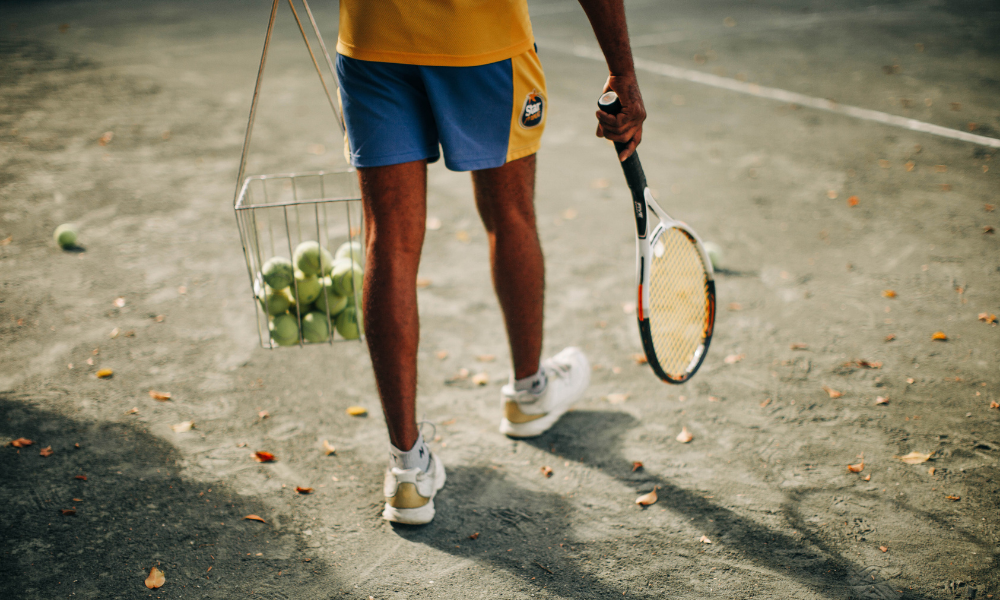Is there anyone that can say that the global pandemic hasn’t impacted their activity levels in the past year?
With England continuing to progress through the roadmap out of the restrictions set, now is a good time to reflect on the good and not so good changes we have made in our day-to-day activities —how our movements have changed and what impact it has made on our bodies.
Before the first lockdown in March 2020, many of us walked to the bus stop, strolled into town on our lunch breaks, had to climb a flight of stairs to see our boss or walked the kids to school. Then suddenly that had to stop. Those that could worked and educated from home, and those that couldn’t had a big void to fill. Some people had more time on their hands, some people had less.
Activities like the gyms, the football clubs, climbing walls and swimming pools were no longer an option — so either we had to stop what we were doing or adapt and do what we could do.
The initial restriction of one hour a day for leisure time prompted a wave of us to use our allowance to the best of our ability, consequently parks, forests and pathways were receiving more foot traffic with people wanting to use that valuable time well.
According to gov.uk, ‘gardens, parks, woodlands and rivers have played a huge part in helping us all through the coronavirus pandemic, with almost 9 in 10 adults in England reporting that being in nature makes them happy and 4 in 10 adults are reportedly spending more time in nature than before the coronavirus pandemic, with health and wellbeing being amongst the main reasons for getting outside.’
The nations bike sales increased dramatically — so much so manufacturers struggled to keep up with demand. ‘In the UK, sales of bicycles, including accessories, services and components, were up by 41% in January, compared with a year before, a similar pace of growth to the 45% recorded in 2020 as a whole’ according to the Bicycle Association.
Changing how we use our bodies — whether that is increasing, decreasing, or doing different activities will have an impact on our muscles, joints and bones, in both beneficial and non-beneficial ways.
New physical activities may have brought with them new niggles aches, pains, but don’t let that stop you doing what you do. Be kind to yourself and take the time to find out why your body isn’t functioning how you want it to and try following some of our tips to help you enjoy the activities you can do:
Walking and running are often seen as the easiest way to get active as you have everything you need to step out the door, but take the time to find out if your chosen footwear is giving you the support you need. Bad footwear could cause a long-term effect on your posture and cause problems in the future for your muscles, joints and back.
Cycling can be kinder to the joints than many other forms of aerobic exercise providing great cardiovascular workout with minimal stress to the lower back. However, it is important to make sure that your bike is the right size and adjusted correctly for you as the correct posture is essential to avoid injury.
Back on your feet all day? If you are returning to a physical job after months of not moving in the same way, you may find that your body may not react favourably. To avoid future problems, it is a good idea to take some time to stretch and replicate the movements you will use in the day.
Returning to competitive sports – tennis, golf, football… there may be the temptation to pick up where you left off and make up for lost time, but it’s important to build yourself back up to where you were. You may have kept up your physical health, but some of the movements you make in sport are quite unique to the activity, so be careful not to jump in and cause yourself an injury that could set you back. Take the time to warm up and cool down, imitating some of the actions you perform in your sport.
With all activities, especially ones we haven’t done for a while, it is important to take the time to stretch before and after to warm and soften your muscles. Hydration is essential too, so drink plenty of water, aim for 1.5 litres a day.
Most importantly take the time and listen to what your body is telling you.
Let Frameworks Clinic help to get you back to where you were before covid interrupted.
Free initial consultations are available to new patients.

